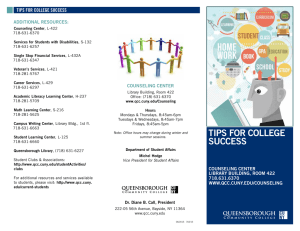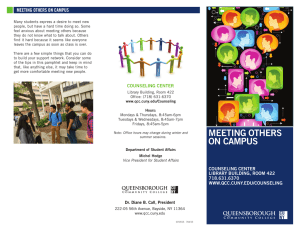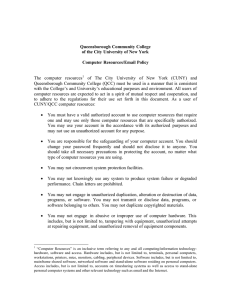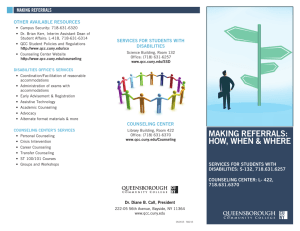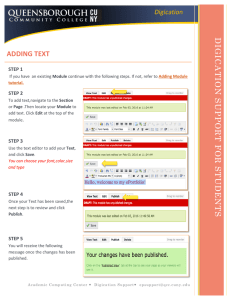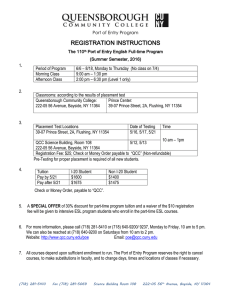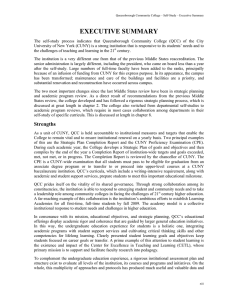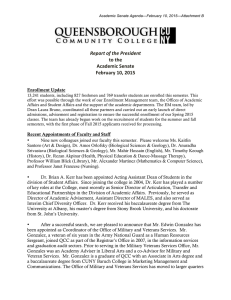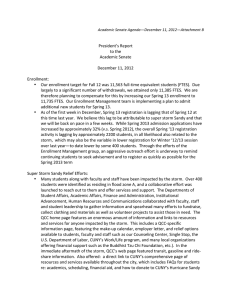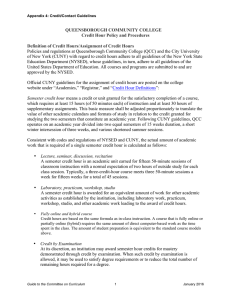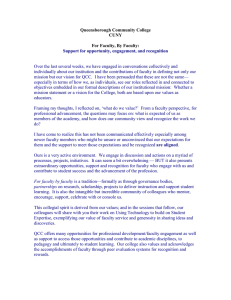C D P Managing StreSS
advertisement
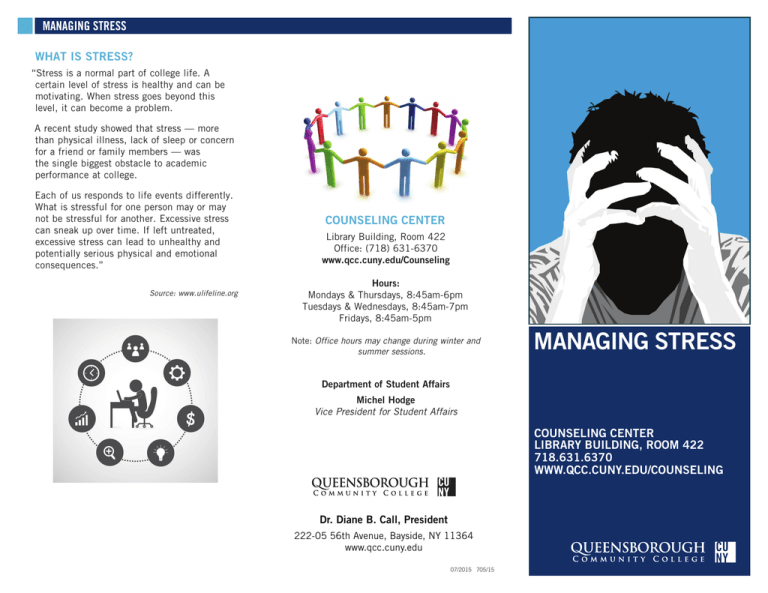
Stress CManaging ollege D iscovery P rogram What is Stress? “Stress is a normal part of college life. A certain level of stress is healthy and can be motivating. When stress goes beyond this level, it can become a problem. A recent study showed that stress — more than physical illness, lack of sleep or concern for a friend or family members — was the single biggest obstacle to academic performance at college. Each of us responds to life events differently. What is stressful for one person may or may not be stressful for another. Excessive stress can sneak up over time. If left untreated, excessive stress can lead to unhealthy and potentially serious physical and emotional consequences.” Source: www.ulifeline.org Counseling Center Library Building, Room 422 Office: (718) 631-6370 www.qcc.cuny.edu/Counseling Hours: Mondays & Thursdays, 8:45am-6pm Tuesdays & Wednesdays, 8:45am-7pm Fridays, 8:45am-5pm Note: Office hours may change during winter and summer sessions. Managing Stress Department of Student Affairs Michel Hodge Vice President for Student Affairs Counseling Center Library Building, Room 422 718.631.6370 www.qcc.cuny.edu/counseling Dr. Diane B. Call, President 222-05 56th Avenue, Bayside, NY 11364 www.qcc.cuny.edu 07/2015 705/15 Managing Stress Signs and Symptoms Coping with Stress How do you know when you are feeling stressed out? Different strategies work for different people. What works for you? It is important you recognize the signs of stress yourself, so that you can be best prepared to cope with and reduce such negative symptoms. The following are a few healthy and effective ways to cope with stress: Physical symptoms of stress include: Am I stressed out? Consider some of the following statements. Have you experienced any of these signs of stress lately? 1.I haven’t been able to manage all that I have going on. 2.I’ve felt angry or irritable over minor things. 3.My appetite has not been the same as usual. 4.I’ve been having trouble getting to sleep or staying asleep. 5.I’ve had difficulty handling my personal problems. If you answered “Yes” to one or more of the statements above, it may be a sign that stress is having an effect on you. Speak with a counselor about what may be causing you stress and get help learning new coping strategies. • Exercise (Yoga, Tai Chi, Swimming, Walking, etc.) • Meditation and Mindfulness • Having a low energy level • Headaches, body aches and pains • Nausea, diarrhea and constipation • Clenched jaw and grinding teeth • Visualization • Watch a funny movie. Laugh! • Maintain a well-balanced diet • Practice Deep Breathing • Muscle tension • Journal-Write about your stress • Difficulty sleeping • Frequent colds and infections • Loss of sexual desire and/or ability • Chest pain and rapid heartbeat • Spend time with friends and family • Get involved in hobbies and activities • Listen to music (and dance) • Volunteer doing something you enjoy • Nervousness and shaking, ringing in the ear, cold or sweaty hands and feet • Take a hot bath • Dry mouth and difficulty swallowing • Improve your time management Emotional symptoms of stress include: • Feeling irritable, easily frustrated or moody • Wanting to avoid others/Isolating yourself • Feeling overwhelmed, difficulty focusing • Having negative thoughts (i.e. “I’ll never graduate on time”, “No one likes me”) • Difficulty with relaxing • Feeling bad, lonely or depressed Source: www.webmd.com • Get enough sleep • Speak with a Counselor
